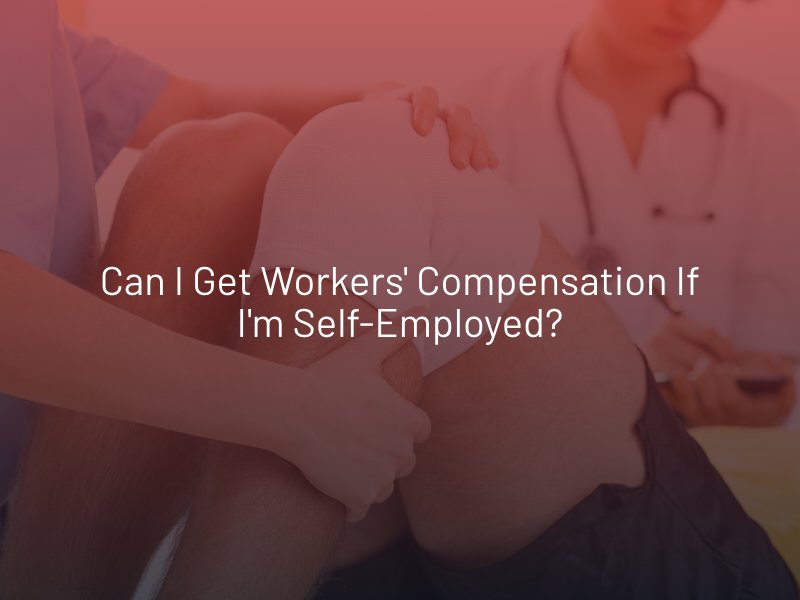Can I Get Workers’ Compensation if I’m Self-Employed?
The vast majority of Nevada workers are covered by workers’ compensation insurance if they are injured on the job. However, those who are self-employed cannot automatically get workers’ compensation benefits.

How Do I Get Workers’ Compensation as a Self-Employed Worker?
Since workers’ compensation insurance is optional for sole proprietors, the only way to get benefits is to have your own coverage. Some companies require independent contractors to carry this type of insurance before hiring them. For instance, construction companies will usually have many self-employed plumbers, electricians, and carpenters working for them on different projects under contract. It often depends on the risk of injury that comes with a particular job. If you do choose to purchase workers’ compensation coverage, finding a policy can be challenging. Larger insurance companies may not view selling such a small policy as lucrative.
Options for Injury Compensation for Self-Employed Workers
In many cases, it is not worth it for self-employed individuals to carry workers’ compensation insurance. When an injury does occur, and if you are not covered, your options for obtaining compensation include suing the responsible party or settling the matter in arbitration. Although you may not be entitled to the same benefits as a company employee, you are still entitled to health and safety protection. Employers are responsible for providing a safe working environment for everyone, regardless of whether you are self-employed. If an employer fails or another party’s negligence contributed to your accident, you have the right to file a personal injury lawsuit with the help of a Las Vegas personal injury lawyer.
What Do I Do if I Am Self Employed and Suffer a Work-Related Injury?
If you get injured in an accident while working as a freelancer or contractor for a third party or company, taking the following steps can help protect you and your claim for compensation:
- Call 911 or see a doctor as soon as possible. This is vitally important to your case, even if you believe your injuries are minor. Medical documentation can link any injuries and potential injuries to the accident.
- Document the scene. If you can, take pictures of the location of the accident, any objects involved, and of your injuries. Ask any witnesses for their contact information and if they will provide a recorded statement of what they saw.
- Report the accident to the company or employer. Even if you have to send a personal email to the employer, having an official written record of the accident will help establish liability. The report should contain specific details, such as the date and time of the incident, how it occurred, and your resulting injuries.
- Keep receipts. Retain any evidence of financial loss, including medical records and any receipts for other accident-related expenses.
- Speak to a lawyer. An experienced workers’ compensation attorney can evaluate your situation and advise you of your legal options for obtaining compensation.
What if I Was Wrongly Classified as Self-Employed by My Employer?
Disputes often arise over who is or is not an employee after an accidental injury occurs. Some employers attempt to wrongly classify employees as independent contractors. This often results in a workers’ compensation claim dispute and going to court to have your worker status decided by a judge.